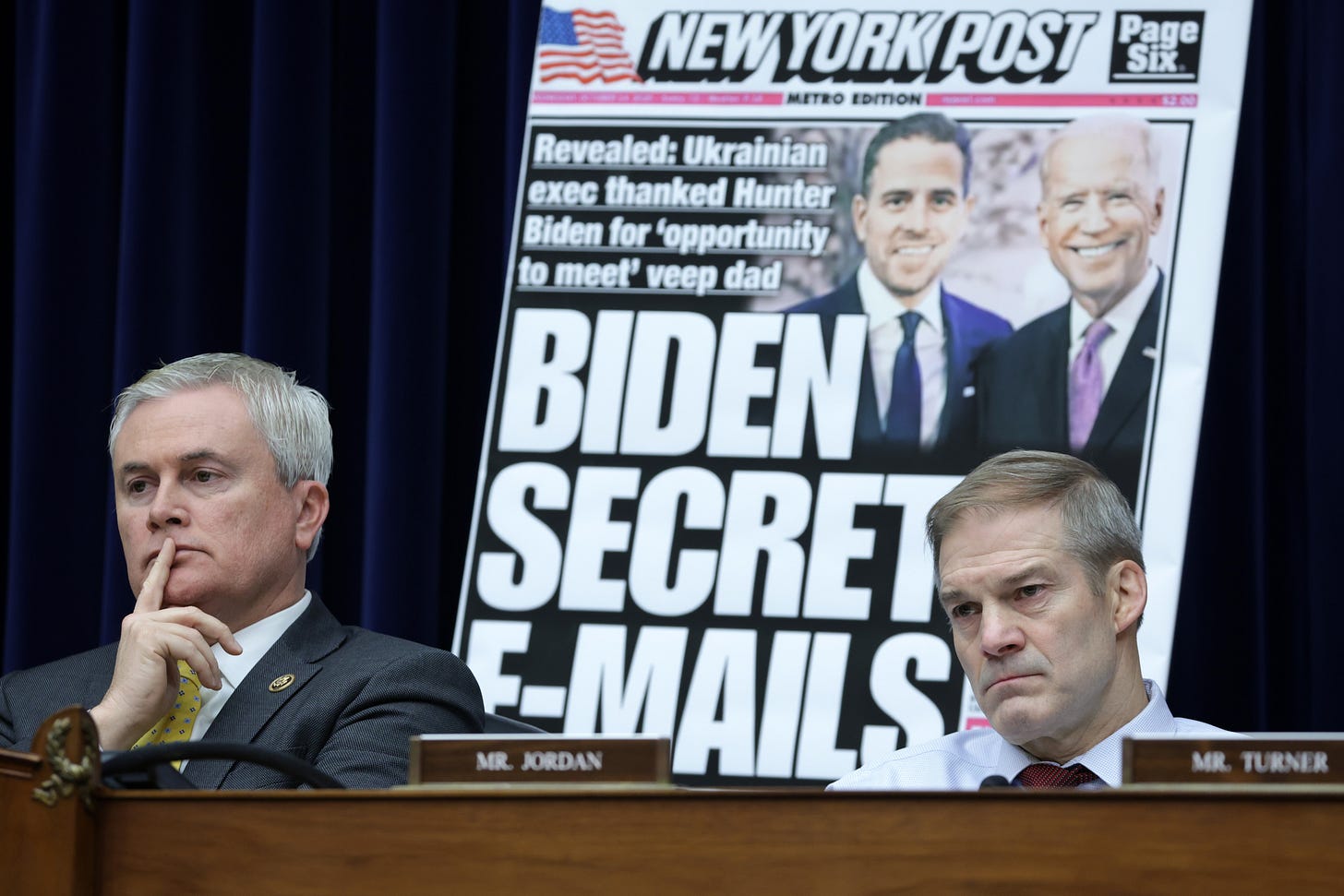Trump's fabled instincts were right after all: if he focuses on Biden and DOJ election interference, he could win in DC and Georgia.
Prosecutors in DC and Atlanta have frozen Trump's election claims in November 2020 amber just as Trump's election interference claims are being confirmed. Maybe Trump's instincts were right all along?
There's a narrative out there that Donald J. Trump has preternaturally accurate instincts. The narrative goes like this: Trump might be outlandishly off-base on some particulars, and he may childishly unleash boorish left-field ad hominems along the way, but, instinctually, on the core overarching narratives that define our time, he's right.
That narrative was persuasive throughout his first campaign and into the first few years of his tenure in office. Trump was instinctually right on many things, much to the consternation of anti-Trump pundits, who sought to muddy clear truths. As Trump rightly noted: the border is broken, China is eating our lunch on trade, we have gotten bogged down in dumb unilateral wars of choice abroad, Democrat-run cities are invariably more violent and disordered, the regulatory state is crippling small businesses, the Trump/Russia collusion narrative was a hoax, the Steele Dossier was a lie, and the best strategic leverage is to become energy independent.
Trump ruffled some of the public's faith in his instincts with COVID, when, given his trial balloon nature, he would let fly all kinds of scattershot speculations when the nation wanted steely verified intel. Amplified by deliberate media misinterpretations of his words and intent, he unnerved people, including some in his base. Fairly or not, that started a year-long process of the public losing faith in Trump’s fabled instincts. So much so that when in November 2020 Trump claimed that the election was “stolen,” as was his first amendment right, a crucial minority of his former supporters no longer trusted him.
Trump has now been criminally indicted in several jurisdictions for making those election denial claims. This is odd since election denialism has been part and parcel of Democratic post-election strategy for years: see Al Gore, John Kerry, Hillary Clinton, and Stacey Abrams. Those prosecuting Trump for his election denialism not only have a clear double-standard hurdle to overcome, they now have to overcome a fast-evolving fact pattern.
Prosecutors in DC and Atlanta have frozen Trump's election claims in November 2020 amber, just as sundry warrants for several of Trump's seemingly outlandish claims are confirming Trump's instincts. In November and December 2020, Trump's claims that there was rampant ballot fraud in the 2020 election struck me as a bridge too far. I still believe that is the case. But the broader claim that the election was "rigged" had merit. Mollie Hemmingway's excellent Rigged, plus the Democrats’ own touchdown celebrations, buttressed my supposition.
The “rigged” component of Trump’s election denialism is gaining traction by the day. And not just the obvious rigging of Democrats overturning state election procedures in key swing states without state legislative approval. The results of those actions––extended time for ballots to arrive, no-signature ballots, unsolicited mass mailing of ballots, and mass ballot harvesting––were determinative. Unfortunately for Trump, various courts rejected that argument.
What has now become undeniable, however, is that Team Biden, with help from their pals in the Department of Justice (DOJ) and intelligence agencies, unequivocally intervened in the 2020 election. The Twitter Files revealed payments from the DOJ to Twitter to censor Trump and his associates and censor any information about––let alone the existence of––the Hunter Biden laptop. Team Biden got 51 corrupt intel chiefs to lie on the record in a game-changing letter that the Hunter Biden laptop was "Russian disinformation." Over 20% of Biden voters have said in polls that had they known that the Hunter Biden laptop was real, they would not have voted for Biden. That's more than enough to give Trump the win.
So, the Dems did rig the election, or at least they interfered. Trump was justified in deploying that argument in his public defense. This means it gets harder to convict Trump of fraud the more evidence appears that at least some of his instincts about the election were correct.




